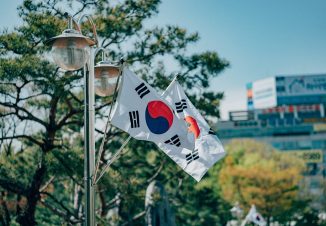
Earlier in 2019, the Korean National Assembly amended the FHPA to:
This amendment took effect on 17 July 2019. The maximum fines for violating these new prohibitions will be up to KRW 30 million for violating the prohibition on corrupt hiring practices, and up to KRW 5 million for violating the prohibition on requesting personal information from job applicants. The FHPA only applies to employers with 30 or more employees; smaller employers are exempt.
The Ministry of Employment and Labor (‘MOEL’) published a manual (the ‘Manual’) on 12 July 2019, to help companies understand and comply with the amended FHPA, which many are calling the ‘Blind Hiring Act’. The Manual is available on the MOEL website, in Korean only.
Summary of the amended FHPA
Prohibition of corrupt hiring practices
Over the last few years, Korea has been rocked by several high-profile hiring scandals at major institutions, involving favouritism towards well-connected applicants, discrimination, and more. In the face of these scandals, there have been steady calls to ensure fair and ethical hiring practices via the law.
The Improper Solicitation and Graft Act already prohibits improper solicitation and illegal acceptance of money, goods, or services, whether in connection with hiring or otherwise. However, it only applies to government officials, and certain private-sector workers who are deemed quasi-public (most significantly teachers and journalists). Until now, there has been no law generally prohibiting private companies from engaging in corrupt hiring practices that are not illegally discriminatory.
To address this issue, the National Assembly amended the FHPA to prohibit engaging in improper solicitation, coercion, or pressure in connection with hiring decisions and to prohibit offering or accepting any gift, entertainment, or other thing of pecuniary value in connection with any hiring decision. First-time offenders who violate these new prohibitions are subject to an administrative fine of up to KRW 15 million, and repeat offenders are subject to a fine of up to KRW 30 million.
Prohibition of requests for irrelevant personal information
The amended FHPA prohibits employers from collecting any of the following information about an applicant if it is unrelated to the legitimate requirements of the job:
First-time offenders who violate these new prohibitions are subject to an administrative fine of up to KRW 3 million, second-time offenders are subject to a fine of up to KRW 4 million, and repeat offenders are subject to a fine of up to KRW 5 million.
Implications for employers
Employers should take care to ensure compliance with the new requirements. Please take note of the following recommendations for employers.
Review policies
Review your recruiting policies and practices for any conflict with the new law, and make any necessary changes.
Check hiring history
Examine your past hiring history for any warning signs of improper practices, especially if you are aware that recruitment via informal networks and recommendations has been permitted or tolerated in the past. Take necessary action to correct any problems you identify.
Remove requests for hometown information
Check if ‘hometown’ is currently included in your job application forms, and if so, remove it. Companies in areas outside Seoul are particularly likely to request that applicants identify their hometown in their resume or job application form, as they often favour hiring local talent because locals are viewed as likely to be a better fit. But this information is unrelated to legitimate job requirements and should not be included under the amended FHPA.
ID photos still acceptable
You may continue to request ID-style photos from job applicants for identification purposes. Requesting an applicant’s ID-style photograph is a common feature in Korean job applications. According to the Manual, and given the legislative history, this will still be permissible under the amended FHPA.
Limit questions soliciting personal information
It may be arguable, but our recommendation is to avoid requesting non-job-related personal information both in written application materials and in interviews and calls during the hiring process. The language of the amended FHPA that prohibits requests for personal information unrelated to legitimate job requirements refers only to written job-application materials, without expressly including interviews or other oral communications. This could be interpreted to mean that interview questions, for example, are not regulated, at least under the FHPA, and that an interviewer can freely solicit such information so long as it does not violate other laws such as Korean anti-discrimination laws. But such an interpretation seems contrary to the spirit of the new amendment. Especially since soliciting non-job-related personal information can often implicate Korea’s anti-discrimination laws, we recommend being conservative and avoiding those kinds of questions in interviews and other oral communications, unless there is a strong reason to do otherwise.


